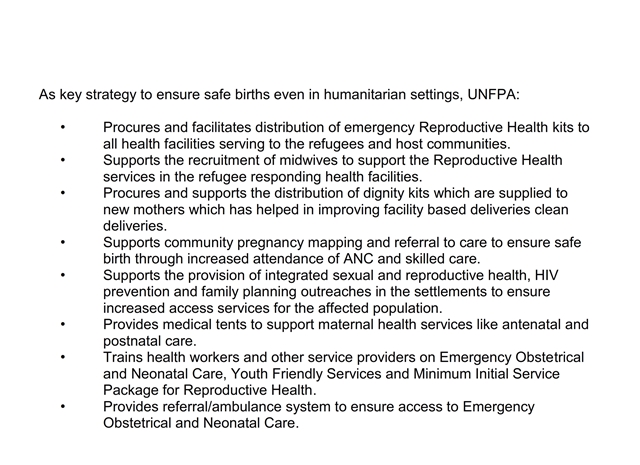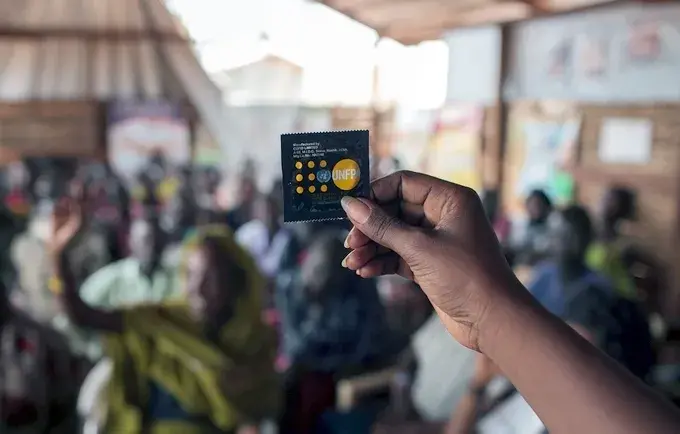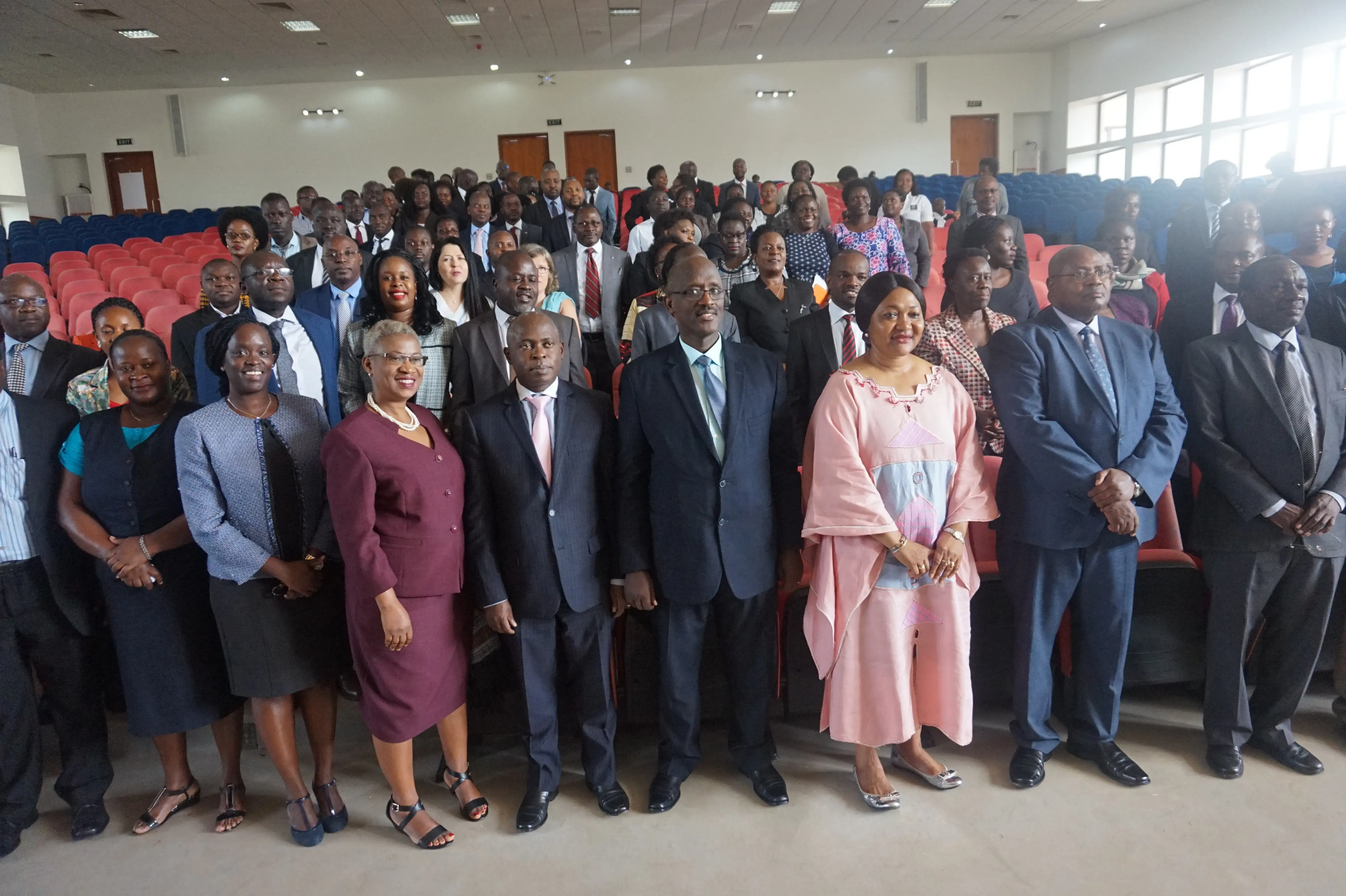LAMWO, Northern Uganda: At a refugee reception centre in northern Uganda, nine refugee mothers stood in a single-file line cuddling their newborn babies all wrapped up in heavy wool blankets. Visibly exhausted and filled with anxiety, each had a story to tell; how they had, pregnant and near their expected dates of delivery, fled the armed conflict raging in the Pajok town in South Sudan.
Of the nine identified mothers, two had delivered along the way, one in a tent at the refugee reception centre and the others - with the help of UNFPA partner, International Rescue Committee (IRC), - delivered at the nearby Ngoromoro Health Centre II under skilled care.
“We walked with difficulty but we could not stay behind because we feared we would be killed by the guns,” said 26- year - old Rose Akongo who arrived at Ngoromoro boarder post in Uganda a worn-out woman.
Not sure when the labour pains would start, Akongo had trekked for two days through the bushes with her three-year old daughter, Brenda Aromorach tied on her back.
On arrival, because of her condition, UNFPA partners on the ground immediately gave her priority and took her to the nearby Ngoromoro Health Centre II for delivery under skilled care.
Like Akongo, five other refugee mothers delivered at Ngoromoro Health Centre II. However, that was not the case for 35-year-old Rose Anyiri whose plan to deliver at a health centre in Pajok was disrupted by the sudden conflict.
“My labour started as we were running away. So I delivered my baby boy along the way in the bushes by the mountainside with the help of my aunt,” she said through an interpreter. 
Meanwhile, twenty-six year old Vicky Auma who had also spent three days and nights trekking through the bushes also delivered a baby boy in a tent at the reception centre on arrival with the help of her mother.
The above are some of the accounts of the consequences of conflict, illustrating how accessibility of maternal and sexual reproductive health services for women and girls are disrupted in emergency situations where one in five women of childbearing age are likely to be pregnant.
All mothers and babies were thoroughly examined to ensure that there were no postnatal complications from exhaustion and possible infections. For those whose situation required specific attention, they were referred to Padibe Health Centre IV.
UNFPA interventions
By working with partners, UNFPA remains committed to its mandate of ensuring that sexual reproductive and maternal health needs of women and girls are not overlooked during emergencies. Ensuring the health and safety of women is not only a moral obligation; it is also a strategic investment in vulnerability reduction that improves the rights of individuals and strengthens their resilience.
- Story and pictures by Evelyn Matsamura Kiapi





